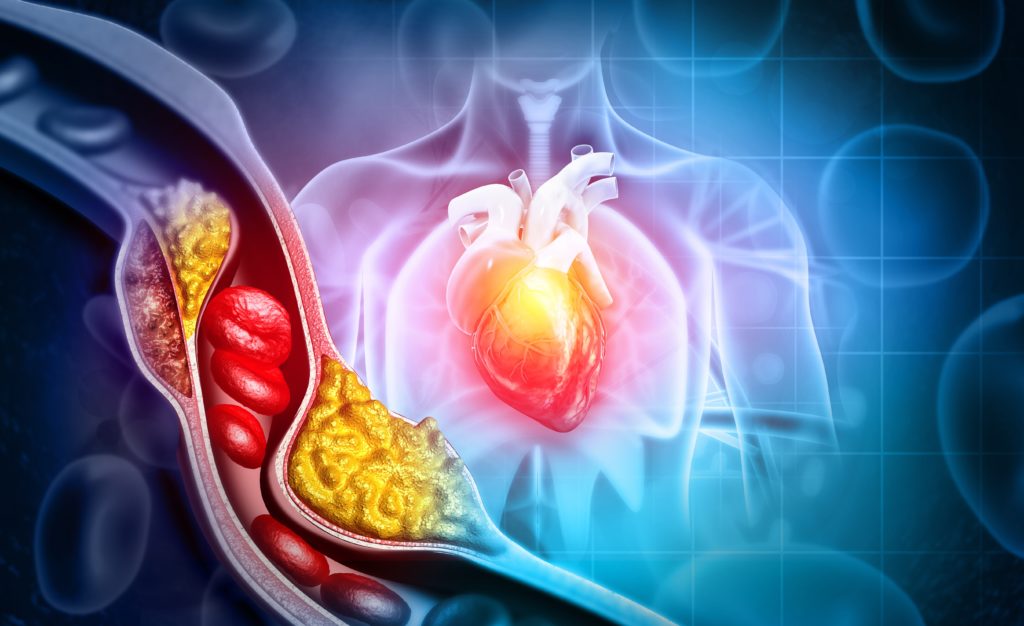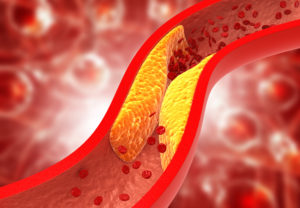What is a QRISK3 score?
A QRISK3 score helps us to understand your risk of having a heart attack or a stroke in the next 10 years. It was developed in the NHS but is used internationally and is an accepted calculation of risk. It takes into account lots of factors such as your age, your weight, your sex etc.
If your QRISK3 score is below 10% your risk is low
If your QRISK3 score is 10-20% then your risk is moderate
If your QRISK3 score is above 20% then your risk is high.Lifestyle measures
The things we eat, our weight and the amount of exercise we do are all tools we can use to lower our cholesterol and improve our health.
The British Heart Foundation has developed 5 top ways that you can lower your cholesterol.
Website
www.bhf.org.uk/informationsupport/risk-factors/high-cholesterol/five-top-questions-about-lowering-cholesterolHow to lower your risk of having a heart attack or a stroke
There are two ways you can lower your risk of developing cardiovascular disease and having a heart attack or a stroke. These are changing lifestyle measures and by taking a statin.
References
How do I lower my cholesterol? we answer 5 of your most common questions – BHF
What is cholesterol? | What are lipids? | HEART UK -The Cholesterol Charity
Statins | Prescribing information | Lipid modification – CVD prevention | CKS | NICE
High cholesterol – Cholesterol levels – NHS (www.nhs.uk)
bmj-001784 1..15 (qrisk.org)
High Cholesterol
We can measure your cholesterol levels by taking a blood test called a ‘lipid profile’. This shows us the different types of fat in your blood. It will tell us your levels of HDL, LDL and Triglycerides but it will also tell us these things too:
Total Cholesterol or Serum Cholesterol – this is your overall level of cholesterol and is calculated using an equation involving your HDL, LDL and a percentage of your Triglycerides.
Total Cholesterol:HDL Ratio – this tells us your HDL levels compared to your overall cholesterol levels.
What should your cholesterol levels be:
The NHS guidelines state that cholesterol levels should be in line with the following:
HDL
1 or above
Non HDL
4 or below
Triglycerides (non fasting)
2.3 or below
Total Cholesterol/Serum Cholesterol
5 or below
Total Cholesterol : HDL
6 or below
What happens if you have high cholesterol?
Too much bad cholesterol gets deposited in your arteries. This builds up and narrows those arteries, reducing the blood flow through them. We call this process ‘atherosclerosis’. When the arteries are too narrowed, it can cause a heart attack or a stroke. This is why it’s important to maintain a healthy cholesterol, to reduce your risk of having a cardiovascular event.
What is Cholesterol?
Cholesterol is a type of fatty or waxy substance found in the blood. We need cholesterol to help us build cell membranes and some other important things like some hormones. Our liver makes all the cholesterol that we need, but we also get cholesterol from animal based foods like meat or dairy.
There are two types of cholesterol – High-Density Lipoproteins (HDL) and Low-Density Lipoprotiens (LDL). HDLs are good cholesterol because they help to carry cholesterol back to the liver to be processed, which means that it releases any extra cholesterol from the body. LDL’s however are considered bad cholesterol, as they transport cholesterol to the arteries, where it can build up and cause disease.
There is also another type of fat in our blood called Triglycerides. These are actually stored in the fat cells around the body. Triglycerides also contribute to the build up of disease in the arteries.
Statins
Statins are tablets that can be taken once a day. They help to lower the amount of bad cholesterol in your blood. They work by inhibiting the enzymes that support the production of bad cholesterol in the liver, therefore slowing it down and reducing the amount. They can also reduce the amount of triglycerides in your blood. As a result, they can lower your risk of cardiovascular disease.
Like all medicines there can be side effects to taking a statin. Most people don’t get any side effects, but some more common ones are headache, nausea, muscle aches or tiredness. If you experience these you can speak to your healthcare professional about alternatives. Some statins can interact with other medicines you may be on, or with grapefruit. Your healthcare professional will check this for you.